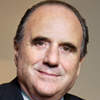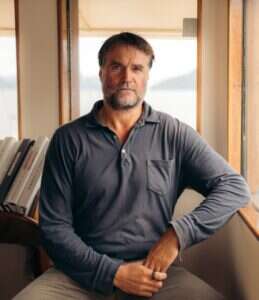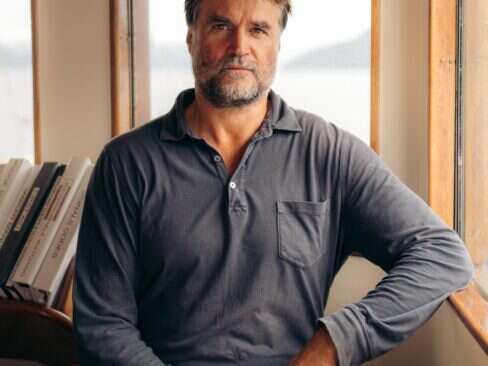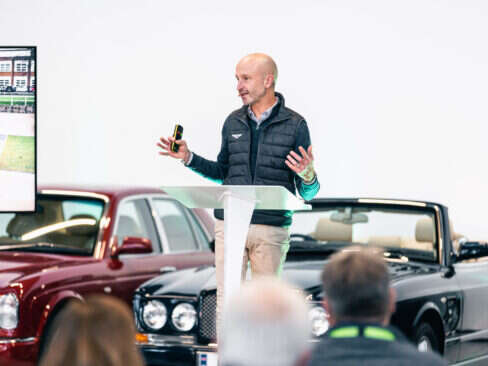
Founder and Group ChairmanCorinthia Hotels
Elite Traveler caught up with Alfred Pisani, a visionary and self-made Maltese businessman, in the weeks leading up to the debut of his hotel group’s spectacular London property, which opened in April 2011. Having grown Corinthia from a single banquet hall to a family-owned luxury hotel empire, Pisani knows what works in hospitality and below, shares some of the secrets behind the magic, plus the inside scoop on the new London hotel.
ET: Tell us about your background. Alfred Pisani: When I finished school at the age of 16 and a half, I was hoping to continue my senior studies in research or sciences, but this was not to be. My father, who had just mortgaged a beautiful property for the family in Malta, suddenly died. Given the high rate of succession tax, the family found it difficult to keep up with mortgage payments, so we took the line of least resistance and started hiring out the villa for wedding receptions, cocktail parties and other similar activities. Business boomed and gradually led to the opening of our 80-cover fine dining restaurant. This led to further involvement in catering, which led, in December 1962, to the opening of an 80-cover fine dining restaurant. In 1964, Malta gained independence from Great Britain and in order to change the Island’s economy from that of a British military base to one of tourism, the governments of both countries launched a financial incentive scheme that offered support for any new tourism related projects proposed by the Island’s business community. We decided to take advantage of the scheme and initially applied to build a 40-room hotel, which eventually developed into a 156-room project.
ET: So that was the first Corinthia hotel? Alfred Pisani: Yes. When we had opened the restaurant, we had called it Corinthia, because my mother had noticed that the palatial columns at the villa’s entrance were of Corinthian architecture, and she therefore identified the name for our new venture. It sounded sophisticated and was easy to remember. When we subsequently opened the hotel, we carried on using the same name.
ET: Back then, did you foresee its current growth? Alfred Pisani: Fortunately, as it later turned out, I didn’t foresee many things back then. Had I done so, I would have probably given up before I even started. For example I didn’t foresee the amount of money it was going to take to build a 40-room hotel, let alone a 156-room property. This was 1964, and to abide by the conditions laid down in the incentive scheme, we had to spend $3 million, which is probably around $45 million in today’s currency. For those days that was a lot of money. Thankfully, I somehow didn’t see this as an insurmountable challenge. We managed to persuade the banks for a two thirds loan, with the other third coming from government as a grant.
ET: What have been the challenges or setbacks along the way? And how have they been overcome? Alfred Pisani: When I look back, I realize that in life, what appear to be seriously negative episodes, are sometimes only difficult situations that spurn us on to greater efforts and appropriate solutions. My father’s sudden death, resulted in a problem with the payment of succession duties, which in turn forced us to be inventive, which is why I thought of building a 40-room hotel; I had no idea, or even ambition, of building a 156-room hotel. Yet, the fact that with 40 rooms we did not qualify for the government scheme described above, made us take an even bigger step and go for a bigger project., and it’s amazing how you can manage from then on.
ET: You speak of hotel hospitality as a craft. How did this idea/approach develop? Alfred Pisani: I think that the notion of always trying to do things correctly came about due to my demanding demeanor. Even from a very tender age, I always wanted things to be perfectly horizontal or perfectly vertical, absolutely clean and in their proper place. We have an obsession for building things that satisfy their function correctly. For example, my motivation and main concern in building a hotel room would be more for obtaining the best room possible, rather than looking at its cost-effectiveness. That too is important, but it is a completely separate issue. I always felt that the journey was more important than the destination. It’s got to be correct in every phase, and I strongly believe that ultimately this approach will also produce the desired result.
ET: What are some of the little details Corinthia does differently? Alfred Pisani: We are very keen on developing beautiful trophy properties and on providing top service, but more than that, we’re especially keen on enhancing the well-being of our employees, organizing their energies into a ‘Craftsmanship of Care’ philosophy that makes them become more positive, so that collectively, we generate an energy that provides our customers with a very strong feel-good factor. That, I firmly believe, is what makes us somewhat different. To deliver this caring service to our guests at the highest possible standards needs knowledge, experience, understanding and a fanatical attention to detail. These are the qualities that distinguish a true craftsman from an apprentice—and to provide hospitality as we do is, indeed a craft. Our mission is to provide our guests with this Craftsmanship of Care. We believe the attention to detail that elevates a craftsman can elevate the experience of visiting one of our hotels.
ET: So what does this mean in our hotels? Alfred Pisani: It means carefully constructing an environment that feels special the moment our guests arrive. It means surrounding them with materials, chosen for their quiet quality and avoiding purposeless display—true power always whispers. The craftsmanship of care reveals itself in everything from the way a guest is welcomed, to the comfort of the room they are offered, to the thoughtfulness of the people who serve them.
ET: Let’s talk about your new hotel in London, a city not lacking in luxury accommodations. In addition to the ethos just mentioned, is there anything specific that will set Corinthia’s new property apart? Alfred Pisani: Let’s look at it from a more materialistic point of view. To start with, we are in a very beautiful, central location in Whitehall Place, totally residential, no shops, on a wide, clean road within walking distance of London’s major landmarks, 10 Downing Street and an easy 15-minute taxi ride from the City. We also have the largest standard rooms in London, at 480 square feet, plus 40 suites of 1,000 square feet, and on the seventh floor, we have seven duplex suites, which measure 4,000 to 5,000 square feet each; they’re like mini-villas.
ET: At 5,000 square feet, you’ll have the largest suite in London. What’s it like? Alfred Pisani: As you enter, you find a center hall that leads onto a study, which in turn leads onto a lounge and a dining area, supported by a kitchen. A lovely staircase leads to an upper floor, also accessed by a lift, just covering the one floor, so one need not have to walk up. The upper area contains four bedrooms, with a beautiful veranda, a small gym and a small sauna. This is truly a home away from home; I think our guests will be very, very happy.
ET: What else can guests expect? Alfred Pisani: We also have a 35,000-square-foot spa, designed in collaboration with ESPA, one of the world’s leading spa operators. ESPA considers this their premier spa for the 21st century, something very special for our customers. The hair-salon is operated by Daniel Galvin, who is number one in London, and our specialty Italian seafood restaurant is run by Rome’s best chef.
ET: Anything else on the horizon to look forward to? Alfred Pisani: We are moving on two fronts, developing real estate and at the same time flying the Corinthia flag in capital city centers like London. This enables us to give greater recognition to our management company, CHI Hotels & Resorts, which we would like to expand not only by managing our own hotels, but also through managing hotels for third party owners. As a parent company, we are owners, developers of new properties—which is an art in itself—and managers of these and other properties. We also own our in-house construction management company, developed over many years, which makes our business model quite unique really.
ET: Would you say the luxury market is bouncing back? Alfred Pisani: The storm clouds are dispersing. People’s tastes are always getting better and better. So even if the luxury market suffered temporarily due to economic reasons, needs and tastes don’t diminish. And so, the moment the economy recovers, people will once more be looking for luxury, be it jewelry, cars, holidays and so on. Life always bounces back. The spirit of us humans is tremendous, and very often, it comes out stronger following moments of diversity, because suddenly all our inventiveness, all of our energy sprouts again to the forefront.
ET: What do you enjoy doing in your off-time? Alfred Pisani: I do a lot of travel, week in, week out, and I try to be home in Malta for the weekend. I am pleased if I can manage to be home by Friday night. I get up on Saturday morning, and simply thank the Lord for being, a phenomenal feeling in itself. I go out in the garden, I take my dogs for a spin. It’s my kind of regeneration over the weekend, in preparation for the following week.
ET: Where do you like to travel for leisure? Alfred Pisani: Malta is very close to Sicily, which has everything, mountains, greenery, sea. I love getting close to nature once more, to the simple things, to the soul of the villages. We have a property in Turkey, which is a lovely seaside resort, and that has become a routine for us, once a year with the family. In winter time, my wife and I, try to go to the Maldives, a real castaway. I like to experience the wholesome environment of a small hotel, or of a bar with local people. It is the soul of the place that I want to absorb, and not so much the sights, beautiful as they may be.
ET: Any closing thoughts? Alfred Pisani: I think it’s important not to look too far ahead, to be conscious of the ground you stand on, because if you’re constantly thinking about tomorrow, and the next week and the week after, you will never have lived. By all means have your overall plans, but think of every tiny step you have to take, because life is a journey, not a destination. People today are tremendously motivated by money, but I would rather concentrate on productivity, which ultimately will bear me the desired fruit, even if I don’t think about it, and possibly you end up getting more fruit than you would ever have wished for.














